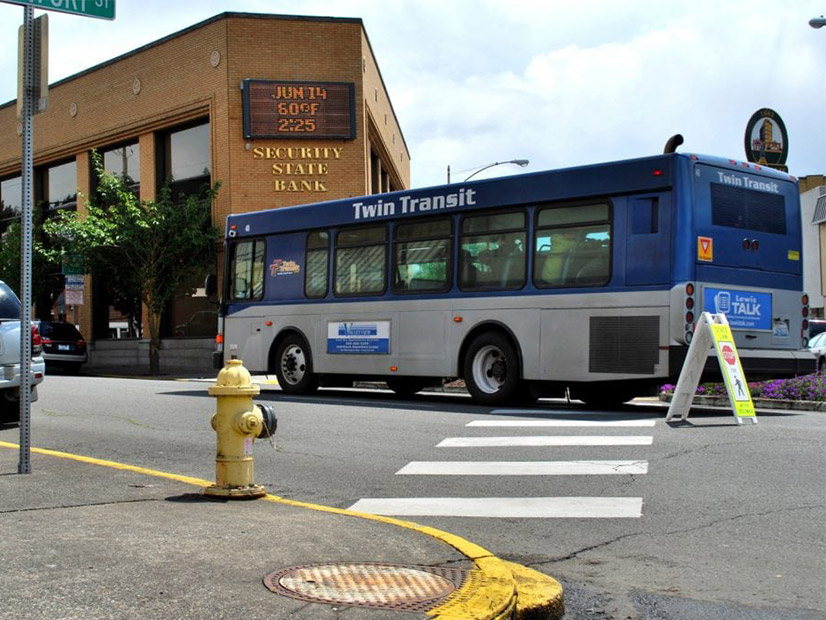Washington legislators have earmarked slightly more than $4 million to build the state’s first two hydrogen vehicle refueling stations.
However, many details of those first stations — in East Wenatchee and Chehalis — still need to be addressed.
Neither will likely be built until 2022, and the appropriations won’t be made until Gov. Jay Inslee signs transportation and capital budget bills, which he is expected to do soon. The money will not show up until July 1, which is the beginning of the 2021-2023 budget biennium.
Twin Transit in Lewis County is scheduled to receive $2.55 million from the state’s capital budget. The proposed hydrogen refueling station will be in Chehalis, which is 26 miles south of Olympia along the I-5 freeway.
The Douglas County Public Utility District is set to receive $1.5 million from the state’s transportation budget for a hydrogen refueling station in East Wenatchee, which is located on the Columbia River on the eastern side of the Cascade Mountains.
Douglas County PUD is already building Washington’s first hydrogen production facility near East Wenatchee, which is expected to be finished in November and provide hydrogen for the two refueling stations. The $20 million plant is expected to produce two tons of hydrogen per day with plans to expand when more output is needed. (See Wash. PUD Breaks Ground on Hydrogen Plant.)
“We are very excited about the hydrogen fueling stations,” said Joe Clark, executive director of Twin Transit. The transit system serves Lewis County, including the twin cities of Centralia and Chehalis,
The transit authority wants to achieve net-zero carbon emissions by 2030. “For an agency our size, it’s a very aggressive goal,” Clark said.
The transit system already uses lower-carbon diesel fuel. It hopes to start using a wireless electromagnetic induction system to recharge a pair of new electric-powered buses on June 3.
Under the system, an electric bus parks on top of what is essentially a big magnet just below the pavement; the electrical field recharges the bus. Clark said that electric vehicles usually take a few hours to recharge, which would be a hurdle for buses that could have to operate in 16-hour shifts. However, parking a bus over the magnetic-wave system for 10 minutes out of every hour should be sufficient for it to last a 16-hour shift, he said.
The hydrogen refueling station on the agency’s land next to I-5 is a next step in Twin Transit’s efforts. The transit system plans to buy two hydrogen-fueled buses and 10 hydrogen-fueled cars as the initial users of the refueling station.
Unanswered questions so far are the total cost of building a refueling station, plus the annual operational costs. The transit authority won’t start tackling those issues until it gets the state allocation on July 1.
Clark speculated that the refueling station would start serving vehicles in late 2022. If enough private hydrogen-fuel cars and truck starts using I-5, Clark said the transit authority might lease the station to a private commercial business.
Meanwhile, Douglas County PUD is also awaiting receipt of state money on July 1 before tackling an exact location in East Wenatchee for the refueling station, its cost figures and its construction timetable, said PUD spokeswoman Meaghan Vibbert. Its first users will be PUD-owned hydrogen-fueled vehicles.
Douglas County PUD, Twin Transit and other local government agencies have been meeting with two private non-profit entities — the Tacoma-based Renewable Hydrogen Alliance and the Portland-based Bonneville Environmental Foundation — to brainstorm dotting Washington with hydrogen refueling stations, possibly 100 or so miles apart. That concept is still in the initial discussion stage, Clark said.




